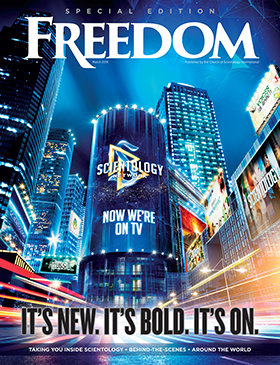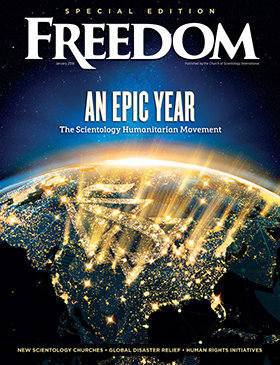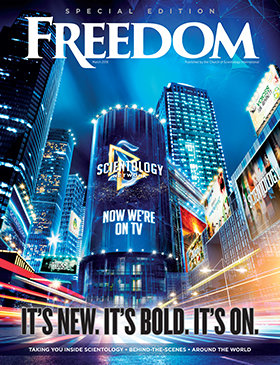
A temple of boisterous balding men raising fisted words of guttural Spanish. Then, suddenly, the din drops to a whimper, and, soon, absolute silence greets the pequeño folletos when they appear: little colorful booklets among the proud loud political profundity of this backcountry Masonic lodge.
Suddenly, cheers tear apart the frequency where anger had flourished. An old public address horn blares out scratchy Cuban folk music, and all join hands, dancing in circles.
That is how El Camino a la Felicidad—The Way to Happiness—was welcomed in Cuba, when the embargo was stalled and the first flights of Americanos landed on the historic isle. At customs, hundreds of Spanish booklets, crammed in carry-ons, placed in backpacks, were noticed, apprehended, perused and smilingly allowed to pass into what has been described as one of the world’s most oppressive cultures.
At the daily street market in Havana, vendors and their customers, alike, stopped and immediately began to read the simple precepts crafted by L. Ron Hubbard. Near the east mountains, workers of Cuba’s famed País del Tabaco (Tobacco Country) ceased harvesting leaves and ran to the fence to join their compadres who had run from the drying barns to grab booklets, many asking for two or three to bring home. Down the road, bright-faced dark-headed schoolchildren listened intently as their teacher read from “Ama y ayuda a los niños” (“Love and help children”) and “No dañes a una persona de buena voluntad” (“Do not harm a person of good will”), two of the 21 precepts contained in The Way to Happiness.
Everywhere it has been the same—spreading the word. And a unique happiness can be seen, hovering over the island like the glorious poinciana trees shading paradise over the wooden shacks.







































